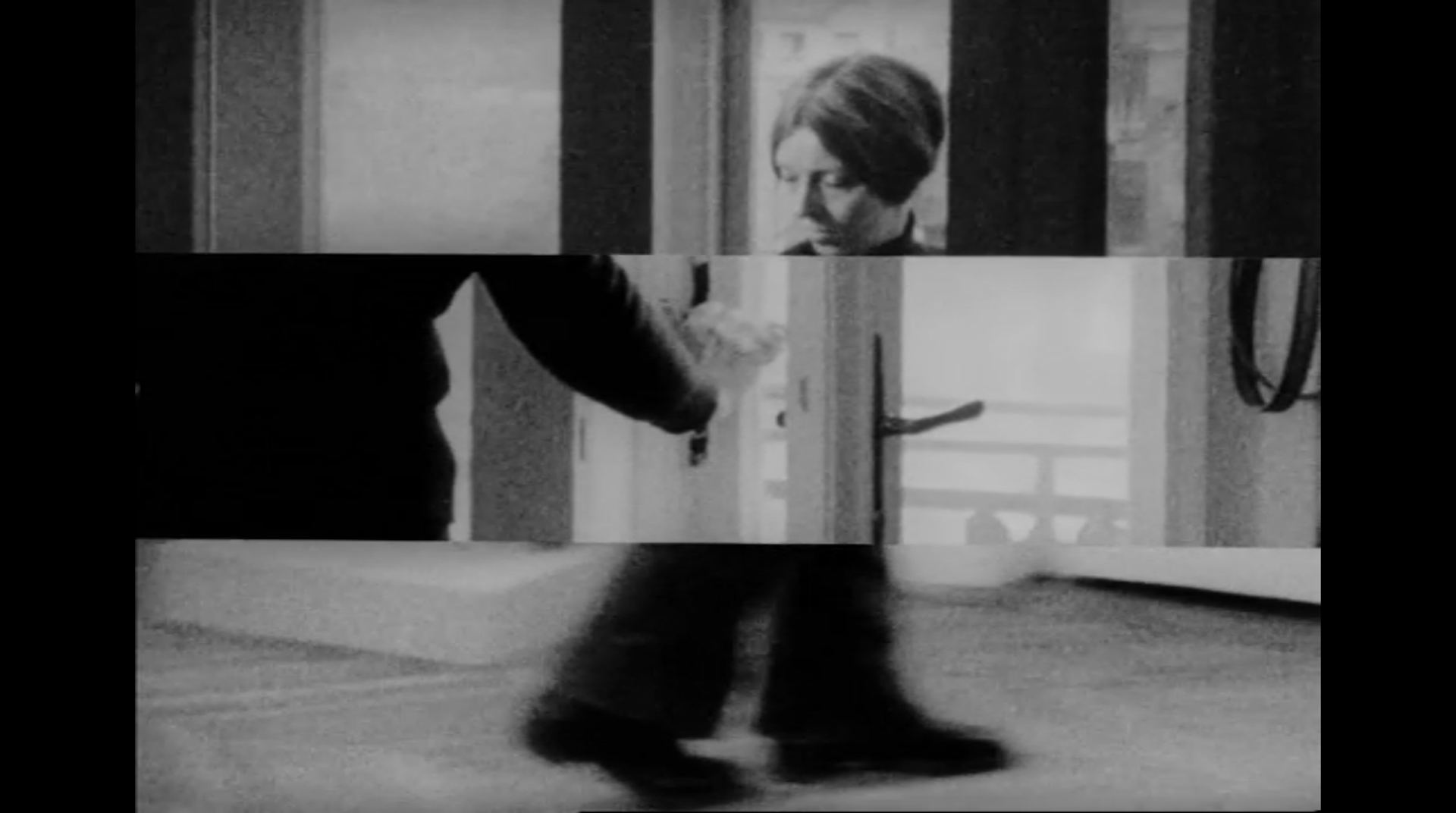Lessons in Film History #6 - East Winds. Experimental Cinema beyond the Wall. Hungary
Dóra Maurer is one of the important conceptual artists in Hungary. She has explored the forms, proportions and serial nature of the notions of movement and change. Triolák is a powerful structural work, made up of shots of the artist’s workshop, shots which are divided into three horizontal segments, each oriented in opposite directions. Follows an ever more complex and elaborate scheme of panning movements which creates a startling feeling of perceptive disorientation, the image seeming to be pulled in different directions at the same time.
Balázs Béla Stúdió (BBS) has been the largest workshop of experimental film and of young Hungarian cinema, borrowing its name from the greatest Hungarian film theorist, Béla Balázs : it was foundend in 1958, when the State intervened to support the autonomous initiative of young directors who self-managed the Stúdió and decided to finance every year a dozen short and mid-length films “invented” and discussed collectively, then handed to one or the other of the group members to direct. There was no obligation to distribute their film in cinemas and above all, as it was an experimental studio, no traditional scenario was necessary, no commercial aspect needed attention: it was the direction elected by Stúdió members themselves who decided, or not, to present the films to the public, and in which form, and this gave the young directors the possibility to experiment without censorship, self-censorship, or compromise. Films which rankled the authorities could be confined to an extremely limited distribution, or frankly banned on their completion. But nobody forbade their production and the possibility to direct them with a remarkable degree of creative freedom. The methodology of collective work encompassed all phases of production, but this did not hamper the expression of personal poetics or style; on the contrary, it encouraged their development and their interconnection. The BBS was directly managed by its members: it was a workshop and a meeting place where young creators had the opportunity to concentrate on their preoccupations through debates, confrontations, viewings and reviewings of film classics and new productions, but also via relations established with other circles of film culture outside the country. A more strictly experimental cinema emerged during the 70s, which was marked by groups created with the Stúdió: Gábor Bódy, Miklós Erdély, Dóra Maurer, Tibor Hajas, Tamás Szentjóby are the names to remember from this movement characterised by extremely radical formal research and an opening to other contemporary arts (Fluxus and minimalism) and philosophies (structuralism and linguistics). This was a true avantgarde whose works most often centred on identifying the nature and potential of cinematic expression. In the 80s the Stúdió became more and more interested in video art, television and performance, and there appeared a new penchant for narration. New filmmakers began their path through the Stúdió, such as András Jeles, Béla Tarr and Ildikó Enyedi. Today, the BBS is a research centre and an archive, but no longer a place where films are made. During its history, which lasted fifty years, 271 directors were members, 511 films were made: short films, features, documentaries, essays, animation, experimental films. All this in extremely different styles and in conjunction with a large panoply of other arts: photography, literature, music, theatre, the visual arts, but also disciplines such as history, sociology, pedagogy, ethnography, and anthropology.
curated by Federico Rossin
In East-European countries, when the Cold War was in full swing, dozens of filmmakers challenged pro-Soviet authorities making experimental films often openly in contrast with regime aesthetics, politics, and economics. This new chapter of the Pesaro “Lessons in Film History” aims to take the audience to a still unexplored continent that has remained buried so far. A full array of surprising works established an overt dialogue with international auteur cinema, mainstream cinema of capitalist countries, and socialist realism of Iron Curtain countries. These productions of the three countries were indeed the result of state funding to film schools during the period of socialism, which didn’t prevent them from getting rid of the codes of propaganda and outright mainstream cinema.
ALL SCREENINGS ARE FREE

